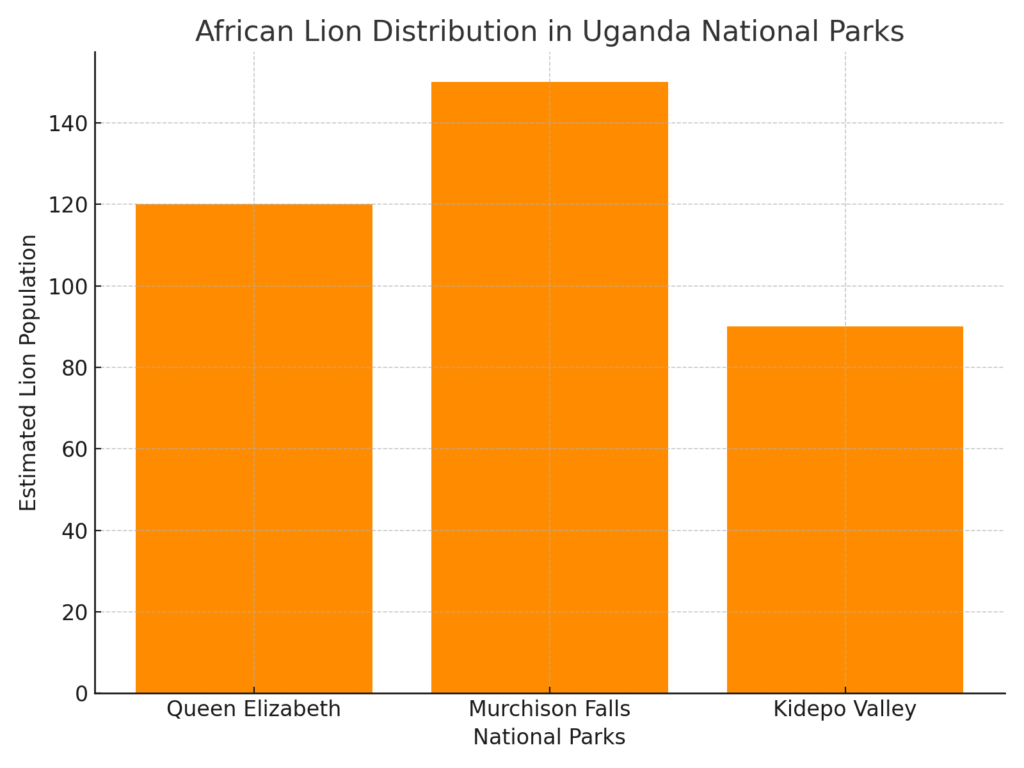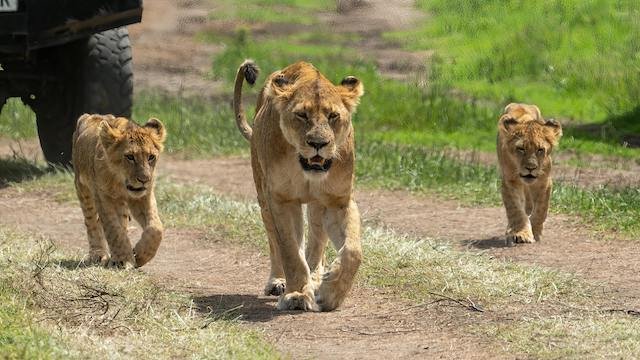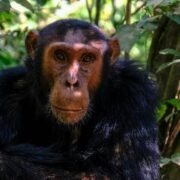
African Lions in Uganda: Behavior & Conservation

African Lions in Uganda National Parks
African lions in Uganda national parks are a major highlight of any safari experience. These majestic predators roam several key parks in the country and are known for their strength, hunting skills, and social behavior. Understanding where they live, how they behave, and efforts to protect them is essential for wildlife lovers and safari planners.
Types of Lions in Uganda
Uganda is home to the East African lion (Panthera leo melanochaita), a subspecies known for its slightly smaller mane compared to southern African lions. Interestingly, some of Uganda’s lions, particularly those in Queen Elizabeth National Park’s Ishasha sector, are famous for their tree-climbing behavior—a rare phenomenon that draws global interest.
Where to Find Lions Where to Find Lions in Uganda
Lions in Uganda can be spotted in:
- Queen Elizabeth National Park (Ishasha sector): Known for tree-climbing lions.
- Murchison Falls National Park: One of the best places to see lions in large numbers.
- Kidepo Valley National Park: Remote and wild, with a healthy lion population.
These parks support lion populations due to abundant prey such as Uganda kob, buffalo, and warthogs. In addition, the open savannah and grasslands offer ideal hunting grounds.

(Internal Link: Explore Kidepo Valley National Park)
Lion Behavior and Social Structure
Lions are the most social of the big cats, living in groups called prides. A pride may include up to 15 individuals, usually related females, their cubs, and a few dominant males. Moreover, lions communicate through roars, scent markings, and facial expressions. They spend most of their day resting, usually active during dusk and dawn.

Feeding Habits of African Lions
Lions are carnivores and apex predators. Their diet primarily includes large ungulates such as buffalo, zebras, and antelope. Additionally, they often hunt in coordinated groups to increase their success rate. While male lions will defend territory, lionesses do most of the hunting.
Breeding Season and Gestation
African lions in Uganda do not have a fixed breeding season. Mating can occur any time of the year, but it typically peaks during rainy seasons when prey is abundant. The gestation period is approximately 110 days. As a result, lionesses typically give birth to 2–4 cubs, which are kept hidden for the first few weeks.
Life Expectancy
In the wild, African lions live for about 10 to 14 years. Males usually have shorter lifespans due to territorial fights. In protected environments like Uganda’s national parks, lions may live slightly longer thanks to reduced threats.
Conservation of Lions in Uganda
Uganda has made significant strides in lion conservation. The Uganda Wildlife Authority (UWA) enforces anti-poaching laws and conducts regular monitoring. Community-based conservation initiatives are also being developed to reduce human-wildlife conflict.
(External Link: Uganda Wildlife Authority)
Despite these efforts, lions face threats from habitat loss and retaliatory killings. Conservation tourism, where tourists contribute through park fees and community tours, is crucial to protecting these majestic animals.
What to Do If a Lion Charges
Lion charges are rare but can occur. Tourists should follow these safety guidelines:
- Stay inside the vehicle: Never exit during game drives.
- Do not run: Running may trigger a chase response.
- Make noise: Speak firmly and raise your arms if on foot during a guided nature walk.
- Follow your guide’s instructions: Always stay close to trained personnel.
Uganda’s national parks are generally safe when guidelines are followed. Park rangers are trained to handle wildlife encounters.
Why Visit Uganda for Lion Safaris?
Uganda offers unique lion-viewing opportunities in natural, uncrowded settings. Notably, tree-climbing lions in Ishasha are extremely rare elsewhere in Africa. In addition, the scenic landscapes, combined with Uganda’s rich biodiversity, make lion safaris unforgettable. Request Your Free Quote Now
Conclusion
African lions in Uganda are a vital part of the country’s wildlife heritage. From their unique behaviors and habitats to ongoing conservation efforts, these big cats offer a thrilling experience for any safari enthusiast. Whether you’re hoping to photograph tree-climbing lions or learn about their breeding cycles, Uganda’s national parks offer authentic and awe-inspiring lion encounters.
Plan your next adventure today and witness the kings of the savannah in their natural habitat.
(Internal Link: See Uganda Safari Packages)
Recent Posts
Hartebeest vs Topi in Uganda: Species, Parks & Key Differences
Mountain Gorillas and Chimpanzees in Uganda
Monkeys in Uganda: Species, Parks & Safari Guide
Tags

Thailand




